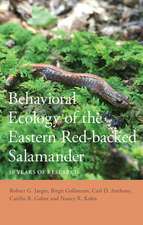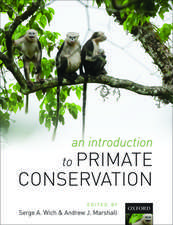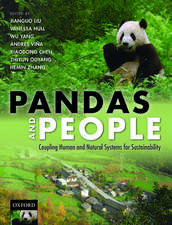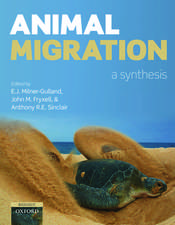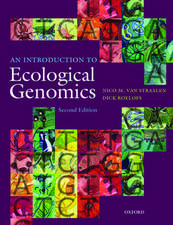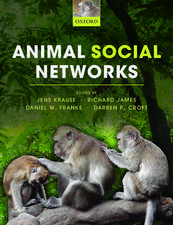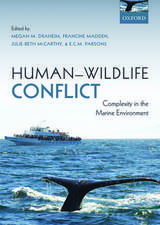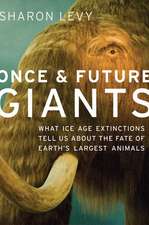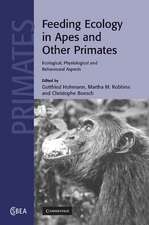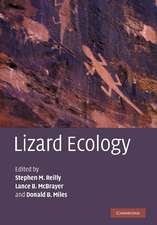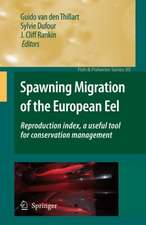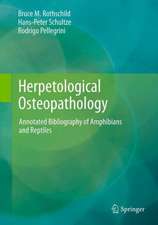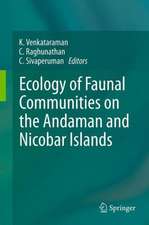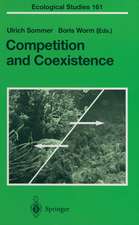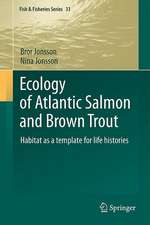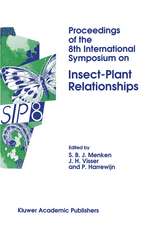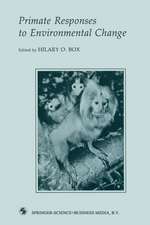Quantitative Genetics in the Wild
Editat de Anne Charmantier, Dany Garant, Loeske E. B. Kruuken Limba Engleză Paperback – 2 apr 2014
| Toate formatele și edițiile | Preț | Express |
|---|---|---|
| Paperback (1) | 470.73 lei 31-38 zile | |
| OUP OXFORD – 2 apr 2014 | 470.73 lei 31-38 zile | |
| Hardback (1) | 837.71 lei 31-38 zile | |
| OUP OXFORD – 10 apr 2014 | 837.71 lei 31-38 zile |
Preț: 470.73 lei
Preț vechi: 539.79 lei
-13% Nou
Puncte Express: 706
Preț estimativ în valută:
90.07€ • 94.04$ • 74.55£
90.07€ • 94.04$ • 74.55£
Carte tipărită la comandă
Livrare economică 24-31 martie
Preluare comenzi: 021 569.72.76
Specificații
ISBN-13: 9780199674244
ISBN-10: 0199674248
Pagini: 294
Ilustrații: black & white tables, figures
Dimensiuni: 191 x 246 x 17 mm
Greutate: 0.66 kg
Editura: OUP OXFORD
Colecția OUP Oxford
Locul publicării:Oxford, United Kingdom
ISBN-10: 0199674248
Pagini: 294
Ilustrații: black & white tables, figures
Dimensiuni: 191 x 246 x 17 mm
Greutate: 0.66 kg
Editura: OUP OXFORD
Colecția OUP Oxford
Locul publicării:Oxford, United Kingdom
Notă biografică
Dr Anne Charmantier is an evolutionary ecologist working for the CNRS in Montpellier, France. Her research interests are centered on understanding the evolutionary mechanisms underlying variation in life-history and behavioural traits in natural populations. She particularly focuses on the role of environmental degradation; this degradation can be internal (i.e. senescence); or external (changes in the environment, including those induced by man). During her PhD in behavioural ecology in Montpellier, she discovered quantitative genetics while working with Loeske Kruuk in Edinburgh. She then spent three years as a postdoc in the University of Oxford before taking up a CNRS position in Montpellier to study evolutionary processes in bird populations. In 2011, she received the CNRS Bronze Medal. She is associate editor of the journals Evolution and Proceedings of the Royal Society B and currently holds an ERC Starting Grant.Dr Dany Garant is Professor of Biology at the Université de Sherbrooke, Canada. His research program is focussed on understanding the factors shaping the adaptive potential of wild animal populations that face changing environmental conditions by assessing both their evolutionary potentials and their phenotypic plasticity. After completing his PhD at Université Laval, where he worked on the molecular ecology of salmonids, he moved to Oxford University where he was a NSERC postdoctoral researcher, working on evolutionary quantitative genetics of birds. After this postdoc he was hired by the Université de Sherbrooke where he established a research group working on these areas of research. He has published several articles in the field of quantitative genetics in the wild and he currently serves as an associate editor for Molecular Ecology.Dr Loeske E. B. Kruuk is Professor of Evolutionary Ecology at the University of Edinburgh, UK. Her research interests are focused on how evolutionary and ecological processes shape biological diversity in wild animal populations. After an undergraduate degree in mathematics, she realized that biology was more interesting and so did a PhD in population genetics at the University of Edinburgh. Her interest in quantitative genetics began during a postdoctoral position at the University of Cambridge, after which she returned to Edinburgh on a Royal Society University Research Fellowship. She has been involved with many long-term studies of wild animal populations, but with a bias towards Scottish ungulates and, more recently, Australian passerines: these have allowed her to investigate a range of issues such as quantitative genetics, the effects of climate change, senescence, phenotypic plasticity, natural and sexual selection, inbreeding depression and maternal effects.

